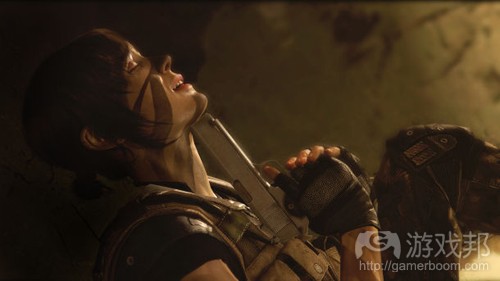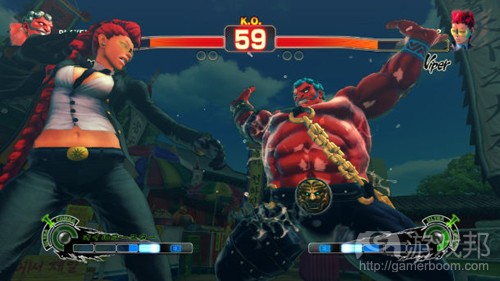媒体报道应避免对游戏的“殖民化”倾向
作者:Tim Biggs
在此我要讨论的是游戏行为中的下一个重大现象:电影。
怀抱长达半个世纪的崇高目标,这个小小的电子娱乐产品以好莱坞级别的剧本、展示和性能“开辟了新天地”。它们不再“仅仅是游戏”了,而是一种艺术作品,正准备迎接“未来的叙事形式”这个新命运。
如果说以上引言听起来有点狭碍或者离题,那是因为我是从主流媒体对《Beyond:Two Souls》的报道中解述电子游戏的状态。
我们不难发现,来自非专业游戏网站的媒体报道越多,电子游戏就越容易被视为、认为或感觉为一种传统媒体媒体。更重要的是,这些游戏(除了最近的《Beyond》之外,还有《天际》、《L.A.Noire》以及《暴雨》)通常被认为是电子游戏新颖或独创性的最高境界代表。
它们成了这一娱乐形式从数字玩物转为正统媒体的明证。
当然,这些游戏之所以能够获得关注,更多是因为它们与之前我们所认为的作品之间的相似,而非源于自身的娱乐优势;即使有些游戏最出众之外在于非艺术性的功能和玩法(例如《天际》),媒体更关注的却是其图像、表现以及引人入胜的叙事性。
所以,这到底有什么问题?
虽然这看起来像是任何大众媒体报道都在迈出电子游戏作为娱乐实体已被社会所接纳的步伐,但也可以视为媒体试图以《Beyond》等游戏来否认电子游戏自身的独特属性,暗中将视觉合成、写作以及声音同艺术联系在一起,却让媒体和大众无视真正的游戏组成因素。
这种报道指出21世纪初期,从小伴随游戏长大的玩家上了年纪,游戏研究开始成为一门新的学术领域,游戏已经成为电影和文学学术研究的一个热门研究对象,但却不愿意为将其划分成一个新学科。
研究结果通常将游戏视为一种“新型”或现有媒体的子集,某些人认为这是试图将游戏“殖民化”,将其纳入其自身学术阵营的做法。由于它们将已被接纳的电影和文学理论强加于这一新形式,甚少人去探讨游戏超越现成媒体的功能和作用。
现在,由于游戏媒体已经成为更广大群体的消费对象,并与电视、电影角逐观众的黄金时间,我们可以明显看到记者和媒体以“殖民化”的角度来报道游戏的习惯,以及否认电子游戏的非线性、非艺术和“游戏”层面的一惯态度。
我们对这些态度的接受度发送出一个明确信息,即任何以超上或模拟电影及传统艺术质量的游戏是有价值的,而其他游戏则不过是玩具而已。尽管人们在游戏中所投入时间较长,无游戏的用户数量之多,这些都成为游戏被牢牢禁锢在社会禁忌中的影响因素。
为何令电影或电视节目受到欢迎的机制可以成为我们的常用词汇,而令游戏体验受人欢迎的原理却只能成为游戏开发者和游戏发烧友之间的窃窃私语?为什么我们如此沉溺于旧式的质量指标?(游戏社区中有不少人会赞美一款游戏出色的分辨率或嘲笑另一款游戏简单的视觉风格)
也许更大的问题还在于电子游戏在过去几年中频繁出现的“媒体”特征,以及日渐向已被电影所占据的社会空间的趋势,因为电子游戏并非单一媒体已是个不争的事实。
尽管存在诸多区别,《超自然活动》、《蠢蛋搞怪秀4:坏外公》以及《忧郁症》等电影仍属于相同的娱乐媒体。它们拥有相同的线性结构,相同的用户输入量,我们也是用相同的方式消费它们。
那么《Beyond:Two Souls》、《The Simpsons:Tapped Out》、《Wii Fit U》以及《Street Fighter IV》也是这样吗?那种可以用来广泛讨论电影的单一媒体思维并不适用于广泛讨论游戏,因为游戏作用和形式多种多样,不一而足。只有某些游戏可以因叙事或演技方面的进步而受益,所以电影式的影响永远无法成为“下一个重大现象”。但这并未阻止它们成为讨论的集点。
作为游戏玩家,我们能够欣赏来旧媒体的形式,以及完美平衡角色阵容和跳跃物理机制的艺术,但我们总是太容易被以视觉与叙事为主的炒作和价值观所左右,除非人们真正消除这种偏见,并且拥有讨论游戏的合适词汇,我们才能够真正欣赏电子游戏而非将其视为一种数字媒体扩展形式。
你可能无法与一般大众展开与《Resogun》这类游戏的循环有关的对话,但像iOS平台上的《Deivce 6》这种游戏呢?它使用了文学形式来传达游戏世界和规则,但却传递了完全不同于书籍或电影的体验。
那么像《Sound Shapes》这种模拟了记录与即兴创作媒体界线的游戏呢?
我们扩大游戏体验吸引力的唯一方法就是采用社会认为具有艺术性的形式吗,或者说游戏能否以独特但仍具有易用性、令人难忘的形式同非游戏玩家展开对话?
作为资深游戏玩家,我们发现主流媒体报道忽略了许多要点。我们知道好莱无情赏以及全动作捕捉技术并不会推动游戏变革,也并不是什么新鲜事(游戏邦注:除了《Beyond》,美国男演员Willem Dafoe还曾出现在其他电子游戏中)。但除非我们开发出一种与我们所重视的电子游戏层面有关的词汇,否则随着我们业余嗜好的扩展,游戏行业只会出现更多好莱坞式游戏的宣传、成功和开发报道。(本文为游戏邦/gamerboom.com编译,拒绝任何不保留版权的转载,如需转载请联系:游戏邦)
Opinion – Games Aren’t Film: Colonisation and Media Blindness
by Tim Biggs
I present to you the next big thing in gaming: film.
Yes, after half a century of reaching for the stars, our little electronic amusements are “breaking new ground” with Hollywood-grade writing, presentation and performances. They’re “not just games any more” but singular works of art, and they’re ready to embrace their destiny as “the future of storytelling”.
If these quotes feel like they’re a little narrow or missing the point, it’s because I’m paraphrasing statements about the state of video games from mainstream media coverage of Beyond: Two Souls.
It’s hard not to notice that the further away a media outlet is from a dedicated games site (and so the closer it is to a ‘general interest’ or straight news outlet), the more a video game has to look, feel, sound or behave like traditional entertainment media to warrant coverage. What’s more, these games — most recently Beyond but there’ve been others including Skyrim, L.A. Noire and Heavy Rain — are generally represented as the height of the video game form, the ground-breaking or the ‘new’.
XX
Beyond had its good points, but it’s definitely not the height of the video game form.
They’re trumpeted as proof of how far the form has come on its inexorable march from digital plaything (or children’s pastime, or proxy social life for pimply-faced basement-dwelling teens; choose your cliché) toward legitimacy.
Of course these games are trumpeted thus much more for their similarity to works we have deemed worthwhile in the past than for their own entertainment merits (which it’s important to note are not always insubstantial), and even when a title is much more notable for its non-aesthetic features and gameplay (as is the case with Skyrim), it’s the graphics, performances and overwhelmingly the narrative that are pointed to.
So why is this a problem?
While it might seem that any mainstream coverage is indicative of the first steps towards acceptance by society in general of the video game as its own entertainment entity, it could also be viewed as an attempt to use games like Beyond to deny video games of their own unique aspects, implicitly linking ideas of visual composition, writing, and sound exclusively with the artistic and the worthwhile. It leaves the media and populace in general blind to what makes a game a game.
Was it the filmic aspects that made L.A. Noire great? Or the fact that you were in control?
Was it the filmic aspects that made L.A. Noire great? Or the fact that you were in control?
In a way it recalls a situation in the early 2000s when, as more natural-born gamers came of age and game studies began to emerge as a new academic field, games had already become popular objects of study for cinema and literature academics unwilling to make room for a new discipline.
The resulting research, which tended to view games as a ‘new form’ or subset of existing media, was seen by some as an attempt to colonise and subsume the virgin ground of gaming for their own camp. By imposing accepted film and literature theories on the new form, there was very little room for discussing what games do that the existing media simply doesn’t.
Now, as games media becomes consumed by a larger and broader audience and competes for traffic with film and television, it’s clear to see journalists and outlets that have a long history in covering those forms involved in colonisation too, and the persistent attitude of denial towards the non-linear, non-aesthetic and ‘game’ aspects of the video game in media inform the way games are viewed and the way they are made.
Our acceptance of these attitudes sends a clear message that any game aiming to match or imitate the qualities of film and traditional art are worthwhile and valuable, whereas games that don’t are merely toys. Despite the length of time games have been around, and the huge numbers of people that play them, this all has the effect of keeping ‘gameness’ and game conventions firmly in their place of social taboo.
Merely a toy? Or one of the finest slices of game design this generation?
Merely a toy? Or one of the finest slices of game design this generation?
Why, for example, are the mechanics of what make a satisfying film or television show part of our common vocabulary, and yet the exact philosophies behind what makes game experiences satisfying are whispered only between game-makers and avid enthusiasts? Why are we so much more comfortable appreciating the older indicators of quality? (And yes I say ‘we’ to include the gaming community, who never pass up an opportunity to praise a particular game for its superior resolution or deride another for its simplistic visual style.)
Perhaps the bigger problem lies in the frequent characterisation of video games ‘as a medium’ that has grown steadily in complexity over the years and is now approaching a societal space similar to the one occupied by film, because the fact is video games aren’t really a single medium at all.
For all their differences it’s clear that Paranormal Activity, Bad Grandpa and Melancholia all belong to the same entertainment medium. They have the same linearity, the same level of user input. We consume them all the same way.
Is this also true of Beyond: Two Souls, The Simpsons: Tapped Out, Wii Fit U and Street Fighter IV? The single-media mindset that one might bring to a broad discussion of film is entirely the wrong tool to bring to any broad discussion of games, as there are many games for many purposes, in many forms. Only some of these could ever benefit from progress in the area of narrative or acting, and so filmic influences can never be ‘the next thing’. But that doesn’t stop them from dominating the conversation.
Oh man, this makes me want to play SSFIV so badly. (Play, not watch.)
As gamers we’re in the privileged position of being able to appreciate the forms appropriated from older media as well as the art of perfectly balanced character rosters and jump physics, yet we too often let the hype and value culture surrounding visuals and narrative guide us, and if there’s ever going to be a situation where people are completely comfortable regarding video games as something other than an extension of digital media, it certainly won’t happen until that bias dies down and we have a decent vocabulary for discussing a game’s ‘gameness’.
You could clearly never have a conversation coherent to the general populace on the satisfying loop of a game like Resogun, but what about a game like Device 6 on iOS, a title which uses the form and familiarity of literature to communicate its world and rules, yet delivers an experience completely unlike anything you could get in a book or film (something that cannot be said about a single playthrough of Beyond)?
What about a game like Sound Shapes, which blurs the lines between recorded and improvised media?
What about Guacamelee!, Dive Kick, The Wonderful 101 and Tearaway?
What about Guacamelee!, Divekick, The Wonderful 101 or Tearaway?
Do we truly believe that the only way to broaden the appeal of a game experience is to speak so directly to forms we as a society have already deemed artful, or can games do something completely unique to the medium and still be accessible and impressive to non-gamers?
As enthusiasts we can see how much some of the mainstream coverage misses the point. We know Hollywood actors and full performance capture doesn’t make for a game revolution and isn’t even particularly new (hell, Beyond isn’t even Willem Dafoe’s first appearance in a video game). But unless we can develop a relatable vocabulary around the aspects of video games that we do value, the cycle of publicity, success and development around Hollywood-style games will only make up more of the gaming landscape as our hobby expands.(source:ign)
下一篇:应用开发的估计成本及其节省方法









































 闽公网安备35020302001549号
闽公网安备35020302001549号